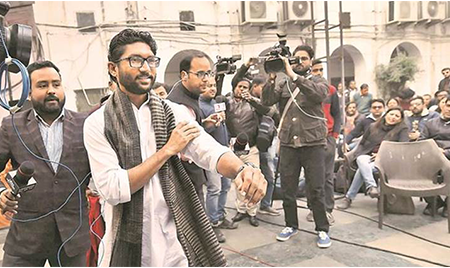Original Print | January 24, 2018 | The Indian Express
Pressures of a different Dalit imagination are colliding against strategies of containment of an old politics

The stirrings in Dalit politics in different parts of the country are deep and profound. What precise political and electoral form they will take is open to question. But a new churning is apparent.
There are variations across states. To simplify matters somewhat, Dalit politics was, till recently, framed by two poles. On the one hand, there were movements to create a Dalit consciousness and win constitutional recognition. On the other hand, the response of the mainstream political system was a “managerial approach” to the Dalit question. This included incorporation of Dalits into the symbolic order of Indian politics while at the same time ensuring that real power shifts were minimal. This is, in effect, also the strategy of Hindutva incorporation of Dalits into its symbolic order: A strategy of containment. The question of reservations was treated as the final frontier of this managerial approach, as if by creating a class of beneficiaries questions of justice could be exhausted, and social contestation defused.
The new generation of Dalit politics will much more profoundly challenge this managerial approach to the Dalit question. In part, this politics is a consequence of significant changes in the lives of many Dalits produced by the economic forces of the last two decades. But these changes have themselves exposed the limitations of current Dalit politics in a number of issues: Violence, mobility, ethics and history. The fact of the matter is that Dalits still remain supremely vulnerable to violence. But this violence is still largely rendered invisible. The brutal gang rapes and murders we recently saw in Haryana did not evoke so much as a political whimper or acknowledgement by civil society.
The devastation of Dalit lives continues in the most sickening way. It could be that gang rapes have now been so frighteningly normalised in Haryana that few bat an eyelid; that it is not treated as a specifically caste problem even though there are profound connections between caste and violence. Dalit political leaders within major political parties seldom transgress the managerial approach of their parties to put a lid on these incidents. But underlying the silence is the subterranean fear that a focus on these atrocities may create the conditions for a more assertive Dalit mobilisation. It is now not ignorance but fear of such a counter mobilisation that produces the cloak of invisibility. But the attempt to render it invisible will produce subterranean currents of discontent.
.....
The author is vice-chancellor, Ashoka University. Views are personal
